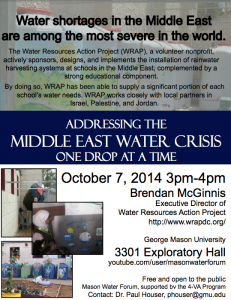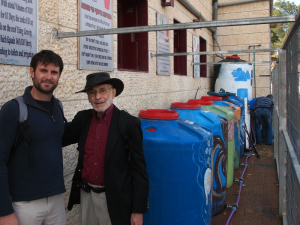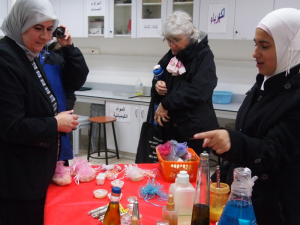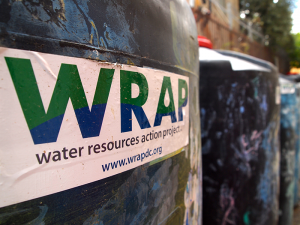Malcolm Siegel, WRAP Program Lead for Operations and Education, visited all of the schools supported by WRAP during May 2014. These included the 2 latest additions to the WRAP network: Tuba Zangaria Junior High School and Eynot Yarden High School on Kibbutz Amir. Work with these schools is done in collaboration with the Youth Environmental Education Peace Initiative (YEEPI) of the Arava Institute.
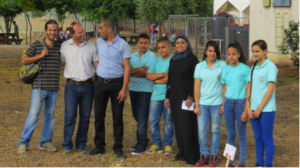
YEEPI staff (Liad Amir, Gonen Sagy), headmaster (Osama al Haib), science teacher (Boteena Rashdi) and students
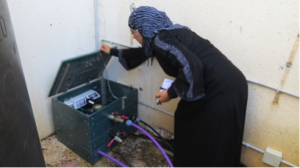
Science teacher (Boteena Rashdi) and equipment box for the rain harvesting system
At the school in Tuba Zangaria, he met with the YEEPI teachers and coordinators (Liad Amir, Gone Sagy, Sana Omar), the school headmaster (Osama al Haib), a parent (Basher Heib) and the science teacher involved in the program (Boteena Rashdi) as well as a group of students involved in the program. The rainwater system provides water to the school toilets. It is operating successfully, and as part of the environmental education program, the students have planted a school garden. The students are encouraged to feel ownership in the program, and the teachers feel this is the best approach to reduce risks of vandalism and theft in the community. The principal, teachers, and parent that he met were very enthusiastic about the YEEPI program and the contribution that the WRAP rainwater harvesting system has made. The teachers and parents hope that their students can provide a bridge between the Arab and Jewish communities in the region; this is important because currently there is little direct contact between these two groups.
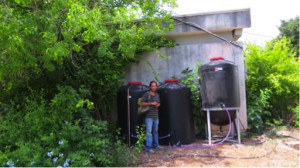
Liad Amir and rain barrel for toilets at Eynot Yarden Science Building
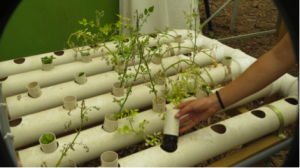
Hydroponics experiment conducted using collected rainwater
At the Eynot Yarden High School, Malcolm met with the school principal, Gadi Lahav, who is also very enthusiastic about the YEEPI program. The system has been installed and is successfully operating. The YEEPI program coordinator, Liad Amir, and intern, Alana Morris, are using the harvested rain water for a variety of purposes including aquaculture and hydroponics. Some of the rain harvesting barrels were put at the science building and used for toilets to allow the most students to see them. Harvested rainwater is used in the greenhouse for a variety of projects that take advantage of the purity of the rainwater. The projects are part of a larger effort to introduce students to different modes of production: sustainable farming using a variety of organic wastes including urine, standard organic farming, and industrial agriculture. Experiments are being conducted to evaluate how water without elements common in groundwater like fluoride affect the growth of algae.
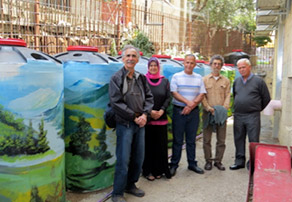 The Water Resources Action Project (WRAP) has concluded another successful year of installing, maintaining, and planning for rainwater harvesting and environmental education projects in the Middle East. WRAP’s Year In Review provides all the latest updates on current projects from the group’s most recent trip to the region, highlights of major milestones from the past year, and a look at what’s on the horizon for 2015.
The Water Resources Action Project (WRAP) has concluded another successful year of installing, maintaining, and planning for rainwater harvesting and environmental education projects in the Middle East. WRAP’s Year In Review provides all the latest updates on current projects from the group’s most recent trip to the region, highlights of major milestones from the past year, and a look at what’s on the horizon for 2015.
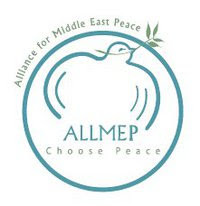 WRAP is pleased to announce that it is now a member of the
WRAP is pleased to announce that it is now a member of the 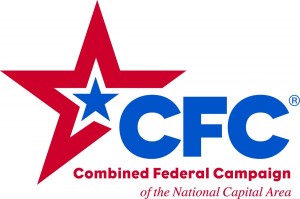
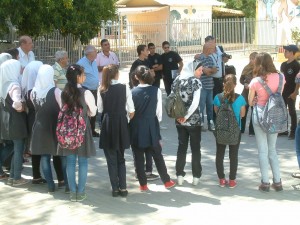
 A team of students from American University’s 2013 Water, Cooperation, and Peace practicum recently returned from presenting at the August 11-15, 2014 International Peace Research Association (IPRA) Conference in Istanbul, Turkey. The conference hosted 550 peace researchers from 94 countries and
A team of students from American University’s 2013 Water, Cooperation, and Peace practicum recently returned from presenting at the August 11-15, 2014 International Peace Research Association (IPRA) Conference in Istanbul, Turkey. The conference hosted 550 peace researchers from 94 countries and